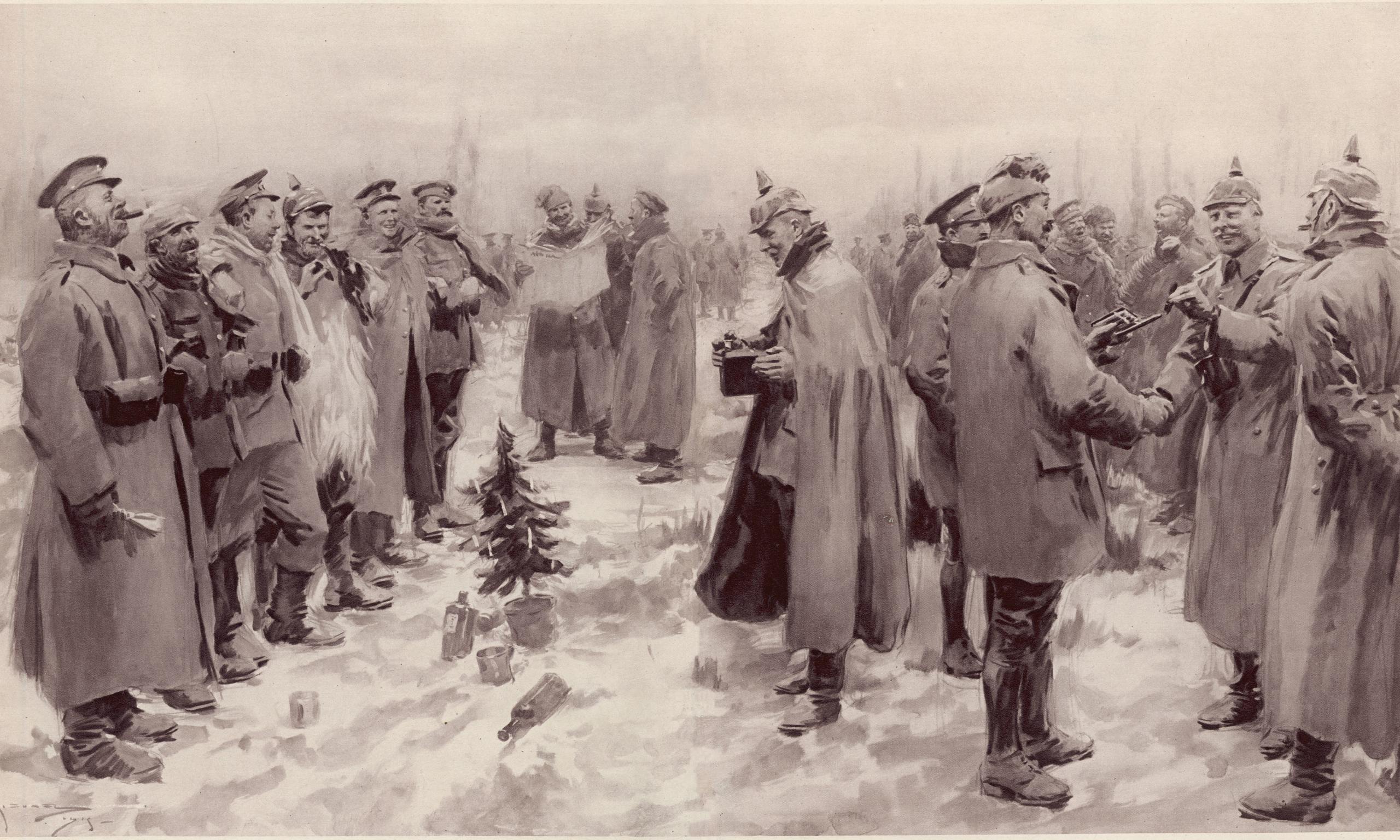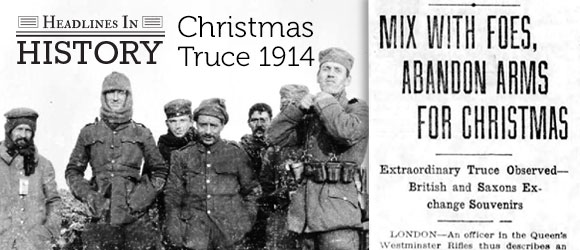British and German soldiers met in no man's land and sang carol, exchanged gifts and took photographs.
During World War I, late on Christmas Eve 1914, men of the British Expeditionary Force heard Germans troops in the trenches opposite them singing carols and patriotic songs and saw lanterns and small fir trees along their trenches. Messages began to be shouted between the trenches.
 |
| Artistic view of famous World War I Christmas Truce of 1914 |
The following day, British and German soldiers met in no man's land and exchanged gifts, took photographs and some played impromptu games of football. They also buried casualties and repaired trenches and dugouts. After Boxing Day, meetings in no man's land dwindled out.
 |
| Famous Christmas Day Truce of 1914 between British and Nazi German in newspaper |
Starting on Christmas Eve, many German and British troops sang Christmas carols to each other across the lines, and at certain points the Allied soldiers even heard brass bands joining the Germans in their joyous singing.
At the first light of dawn on Christmas Day, some German soldiers emerged from their trenches and approached the Allied lines across no-man’s-land, calling out “Merry Christmas” in their enemies’ native tongues. At first, the Allied soldiers feared it was a trick, but seeing the Germans unarmed they climbed out of their trenches and shook hands with the enemy soldiers. The men exchanged presents of cigarettes and plum puddings and sang carols and songs. There was even a documented case of soldiers from opposing sides playing a good-natured game of soccer.
The truce was not observed everywhere along the Western Front. Elsewhere the fighting continued and casualties did occur on Christmas Day. Some officers were unhappy at the truce and worried that it would undermine fighting spirit. The 1914 Christmas truce was an opportunity for both sides to bury their dead.
The so-called Christmas Truce of 1914 came only five months after the outbreak of war in Europe and was one of the last examples of the outdated notion of chivalry between enemies in warfare. It was never repeated.
During World War I, the soldiers on the Western Front did not expect to celebrate on the battlefield, but even a world war could not destory the Christmas spirit.

No comments:
Post a Comment